This topic describes how to use Cloud Migration Hub (CMH) to migrate resources from one Alibaba Cloud account to another.
Survey source account resources
Log on to the CMH console by using the source account. Use the resource survey tool to import the resources within the source account to CMH. For more information, see Survey Alibaba Cloud resources in online mode.
Share source account resources
Log on to the CMH console by using the source account. In the left-side navigation pane, choose Preparation > Resource List. On the My Resources tab of the Resource List page, click Shared Resources.
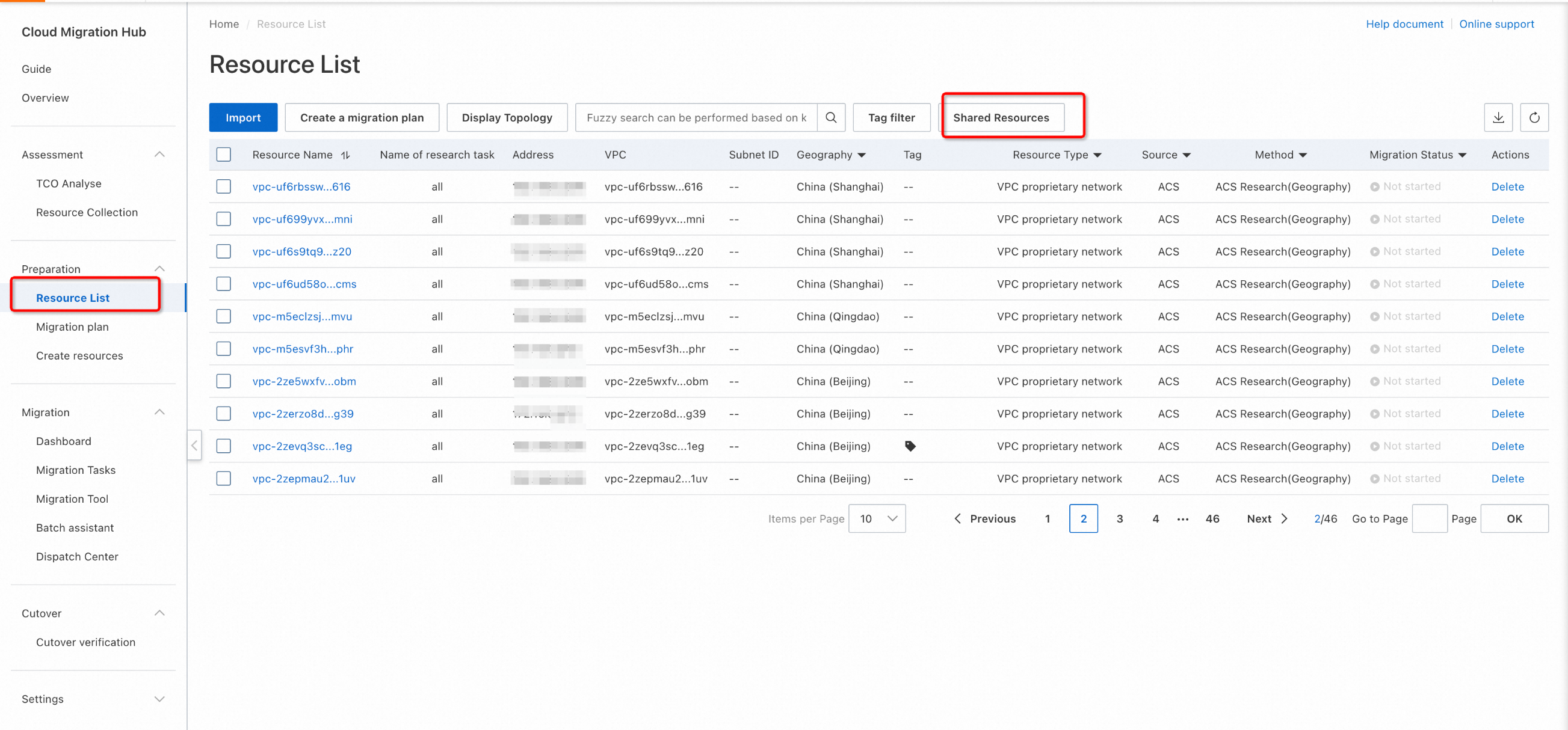
Configure resource sharing
In the Shared Resources panel, select Open Share for the Whether to enable sharing parameter, specify the ID of the account to which you want to share resources, and then click Add.
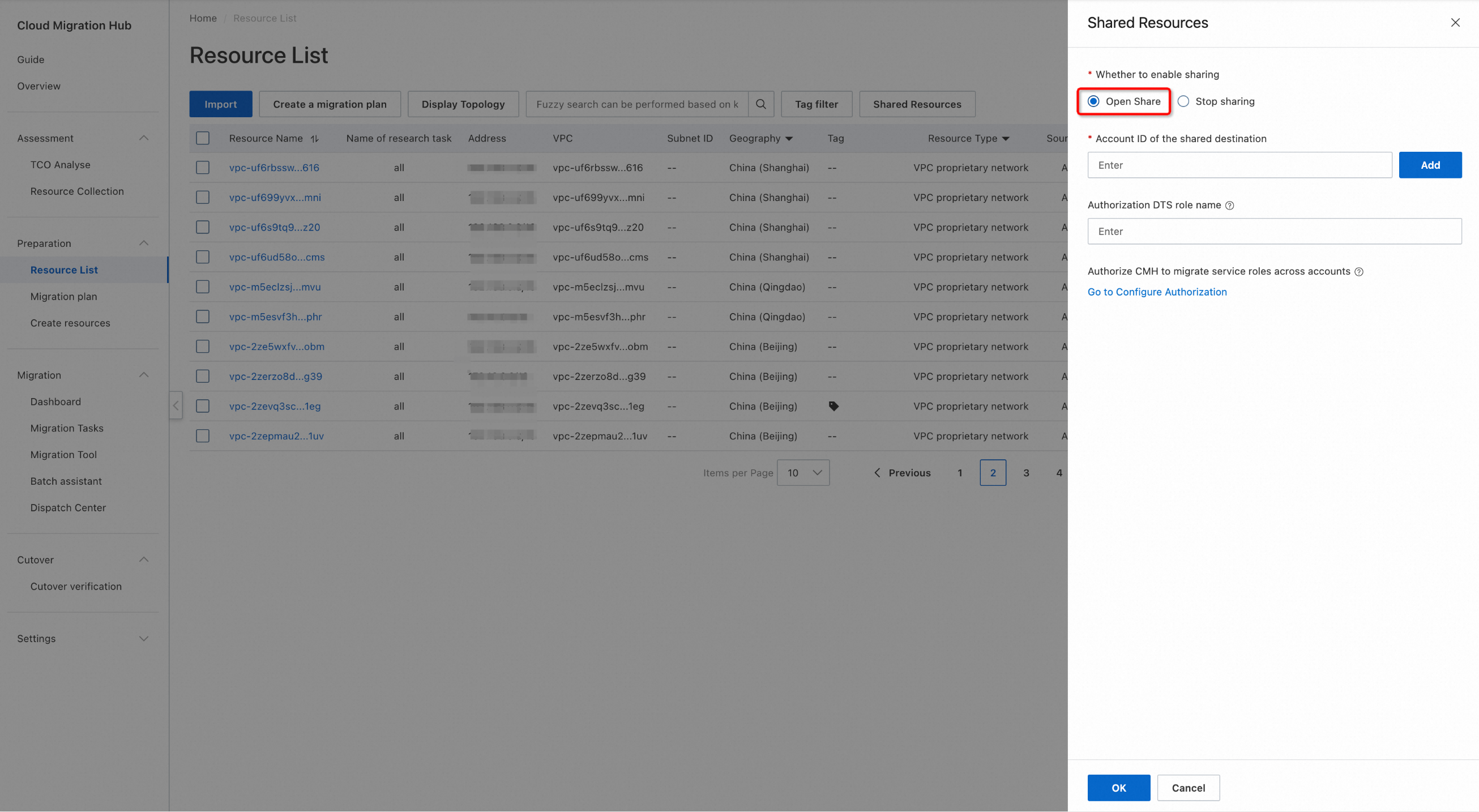
Authorized RAM role of DTS
Enter the name of the Resource Access Management (RAM) role that is used for migration in the Authorization DTS role name field. For more information, see the Preparations section of the "Migrate data between ApsaraDB RDS instances of different Alibaba Cloud accounts" topic.
Authorized RAM role of CMH for cross-account migration
Click Go to Configure Authorization.
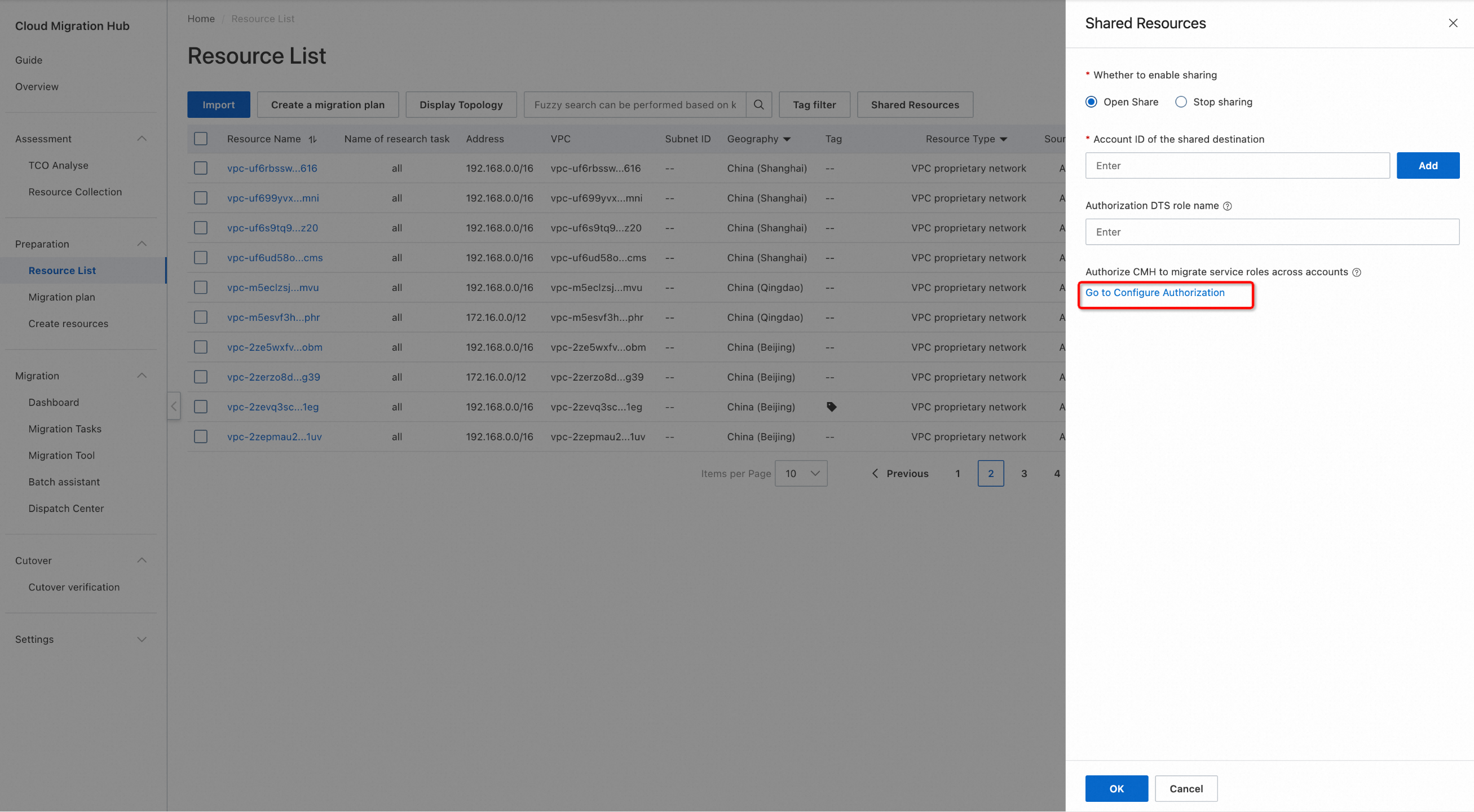
On the Cloud Resource Access Authorization page, click Agree to Authorization. This way, a RAM role named AliyunAPDSCrossAccountMigrationRole is created to migrate resources across accounts.
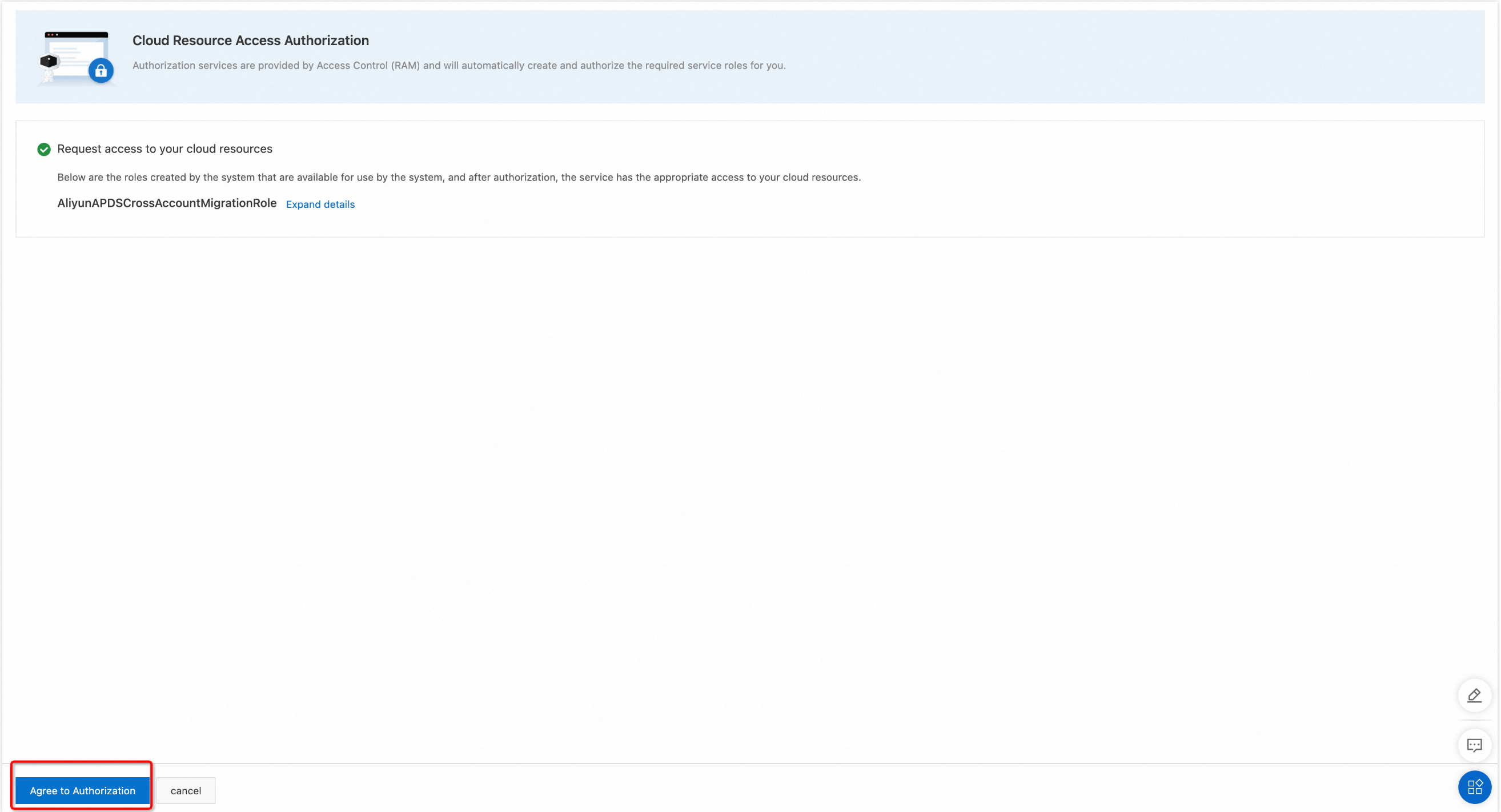
On the Roles page, find the RAM role and click its name.
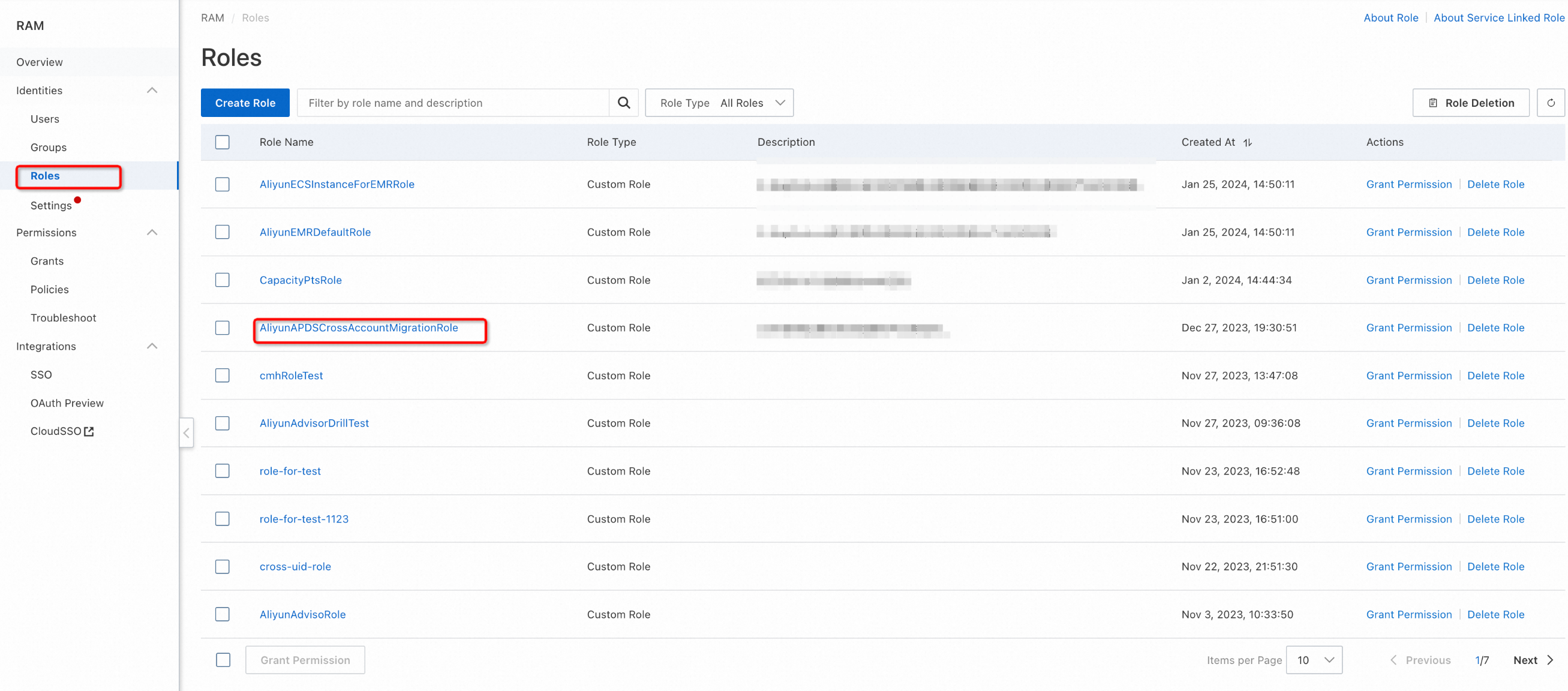
On the RAM role details page, click the Trust Policy tab and click Edit Trust Policy.
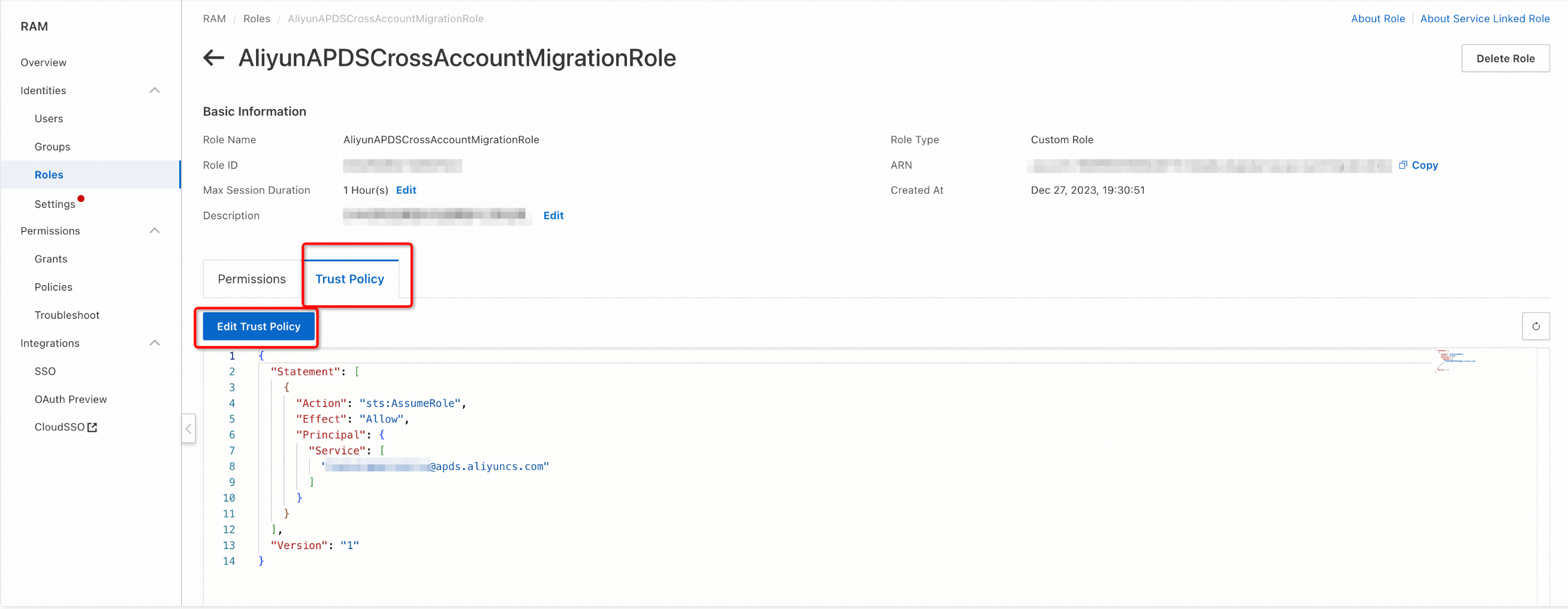
Specify the ID of the destination account before @apds.aliyuncs.com and click Save trust policy document.
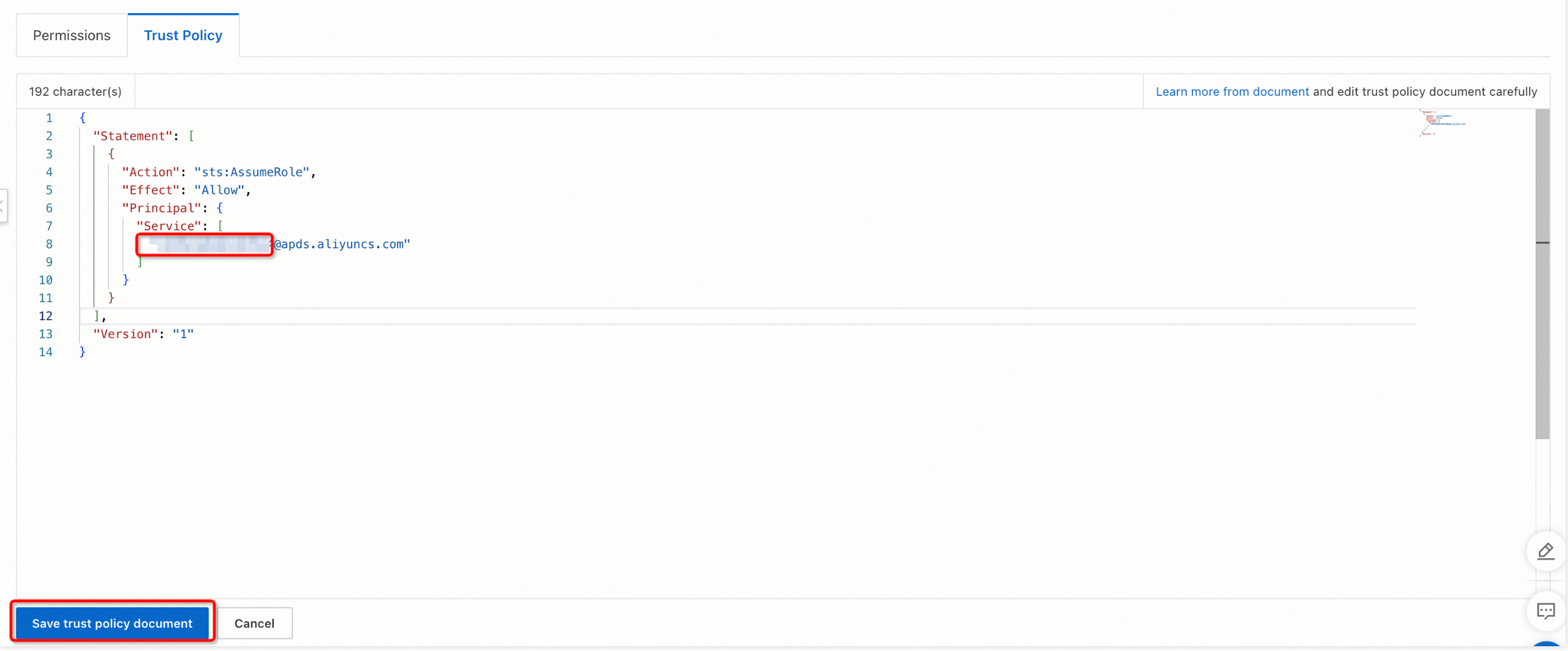
After you complete the preceding operations and permission configurations, go back to the Resource List page of the CMH console. You can view that Shared Resources changes to In shared resources.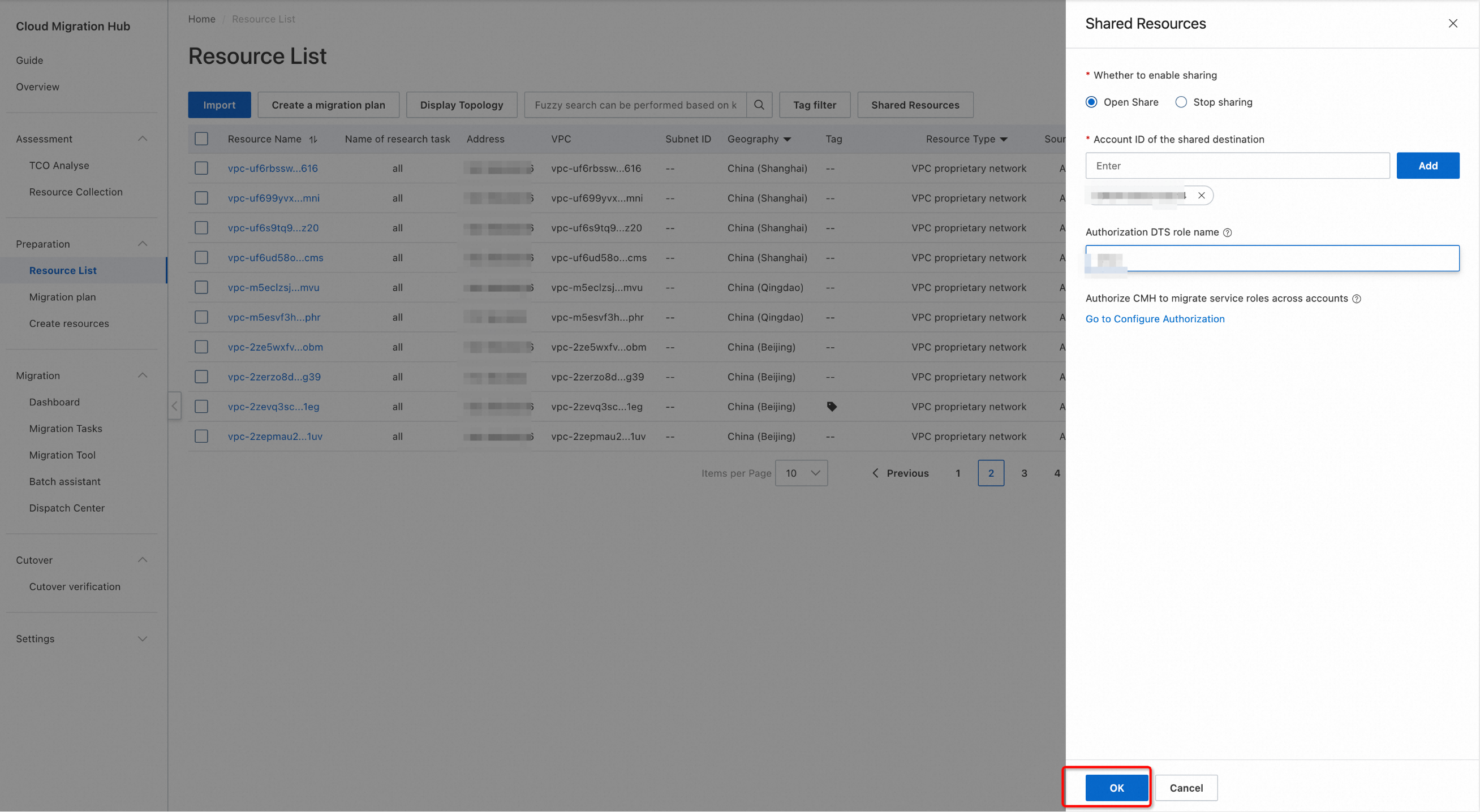

Receive shared resources
Log on to the CMH console by using the destination account. In the left-side navigation pane, choose Preparation > Resource List. On the Shared Resources tab of the Resource List page, a red mark appears in the upper-right corner of the Receive shared resources button. Click the button to open the Receive shared resources panel.
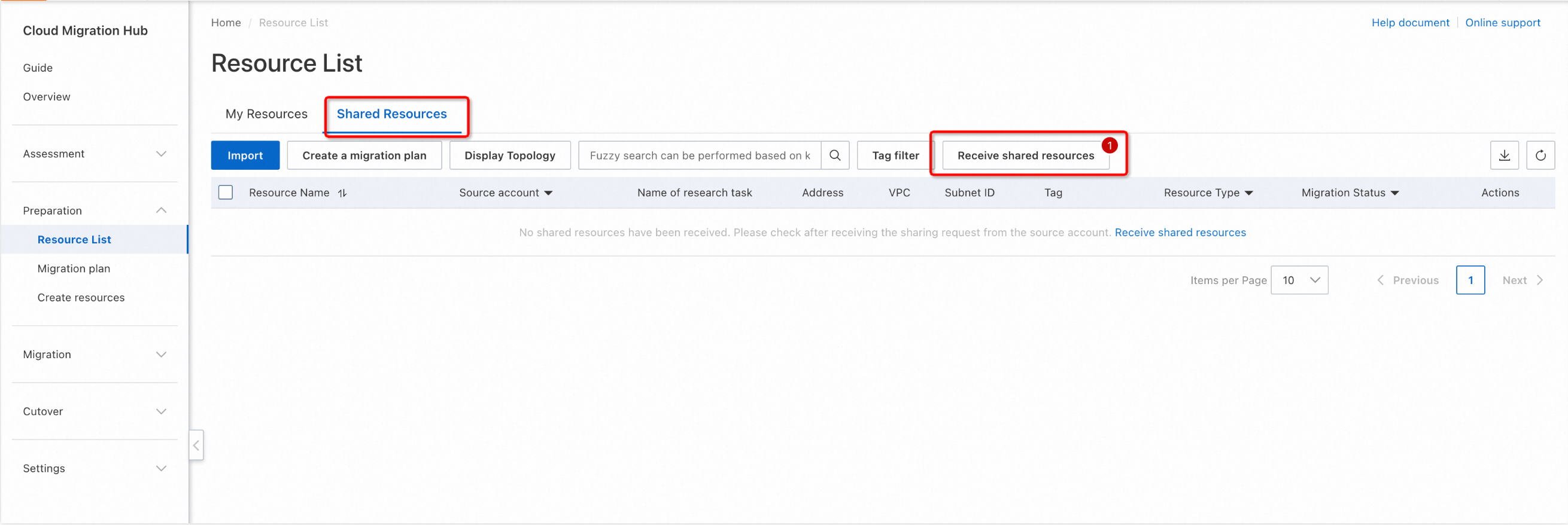
In the Receive shared resources panel, make sure that the ID of the source account is correct and click Receive in the Operation column. This way, the source account resources are synchronized to the destination account.
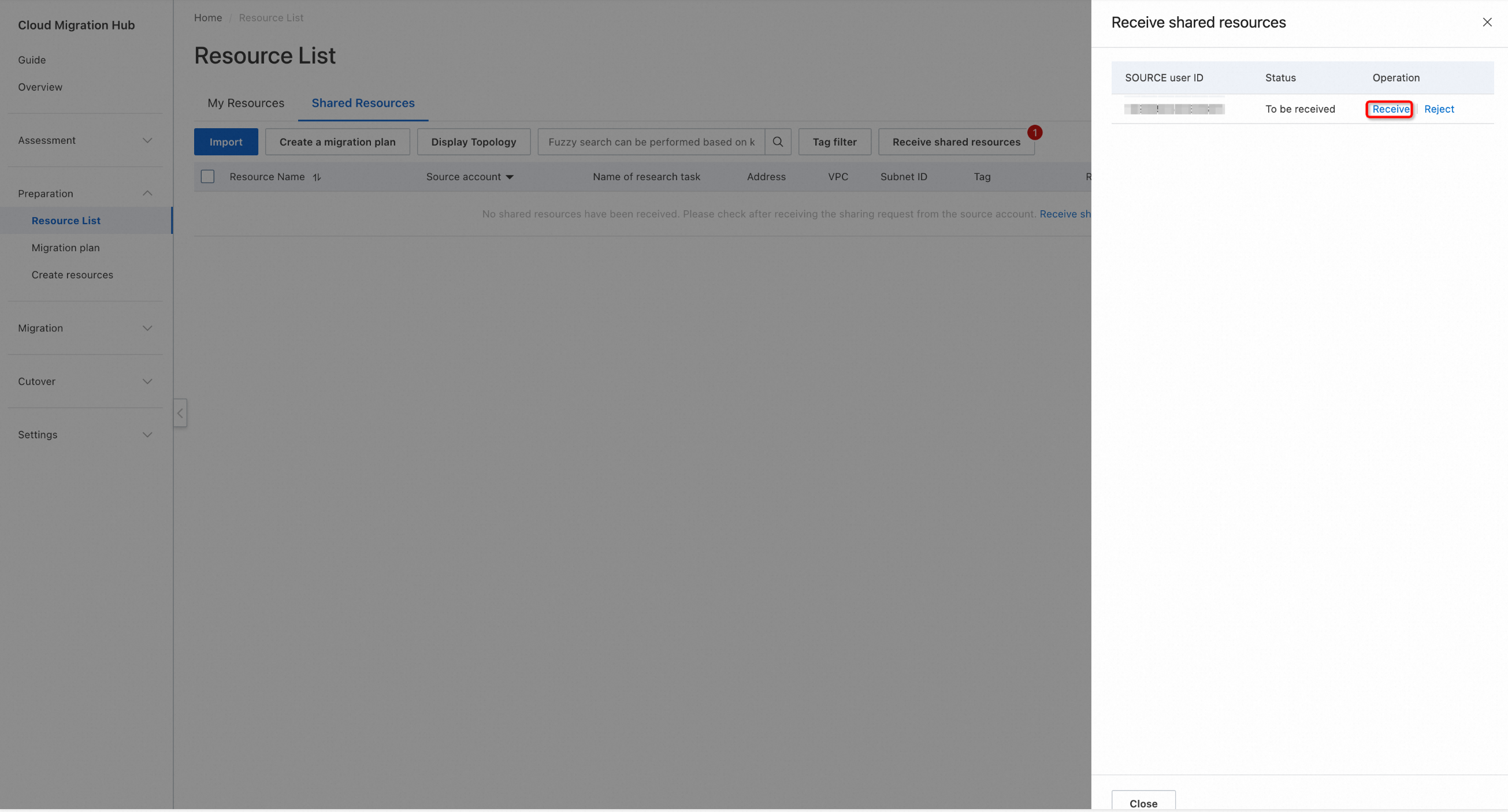
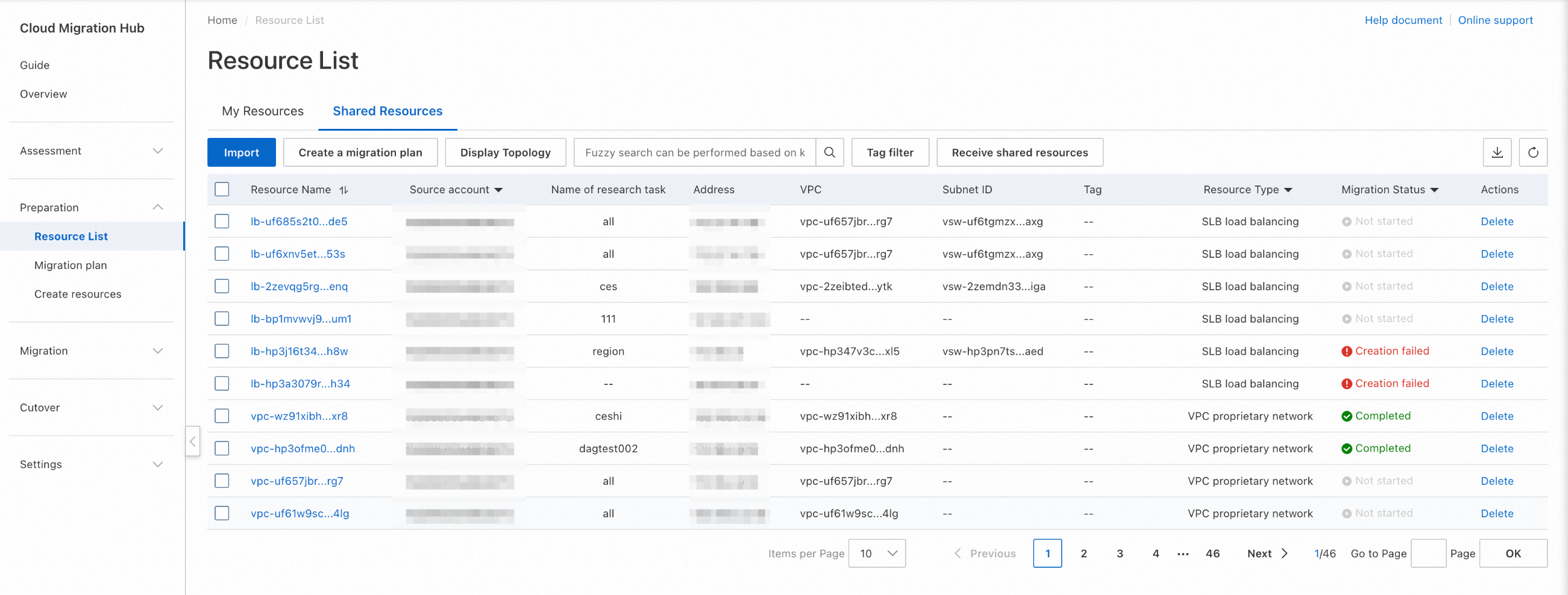
Create a cross-account migration plan
Log on to the CMH console by using the destination account. In the left-side navigation pane, choose Preparation > Migration plan. On the Migration plan page, click Create migration plan. In the Create migration plan wizard, select Alibaba Cloud cross-account migration from the Migration plan Template drop-down list, configure other parameters, and then click Next.

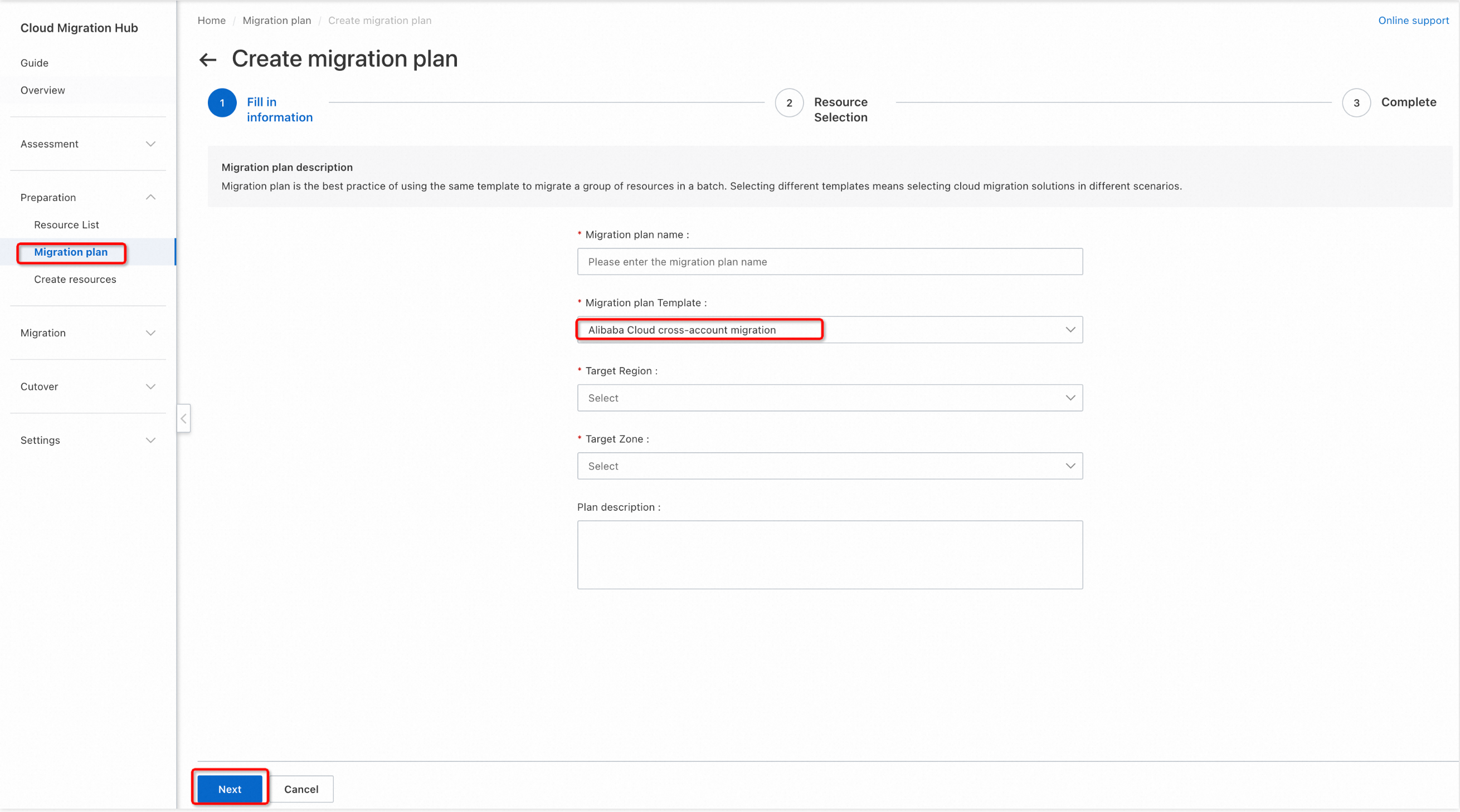
In the Resource Selection step, select the source account from the Source account selection drop-down list. The shared resources within the source account are displayed in the Resources section. Select the resources that you want to migrate and click Next to create the migration plan.
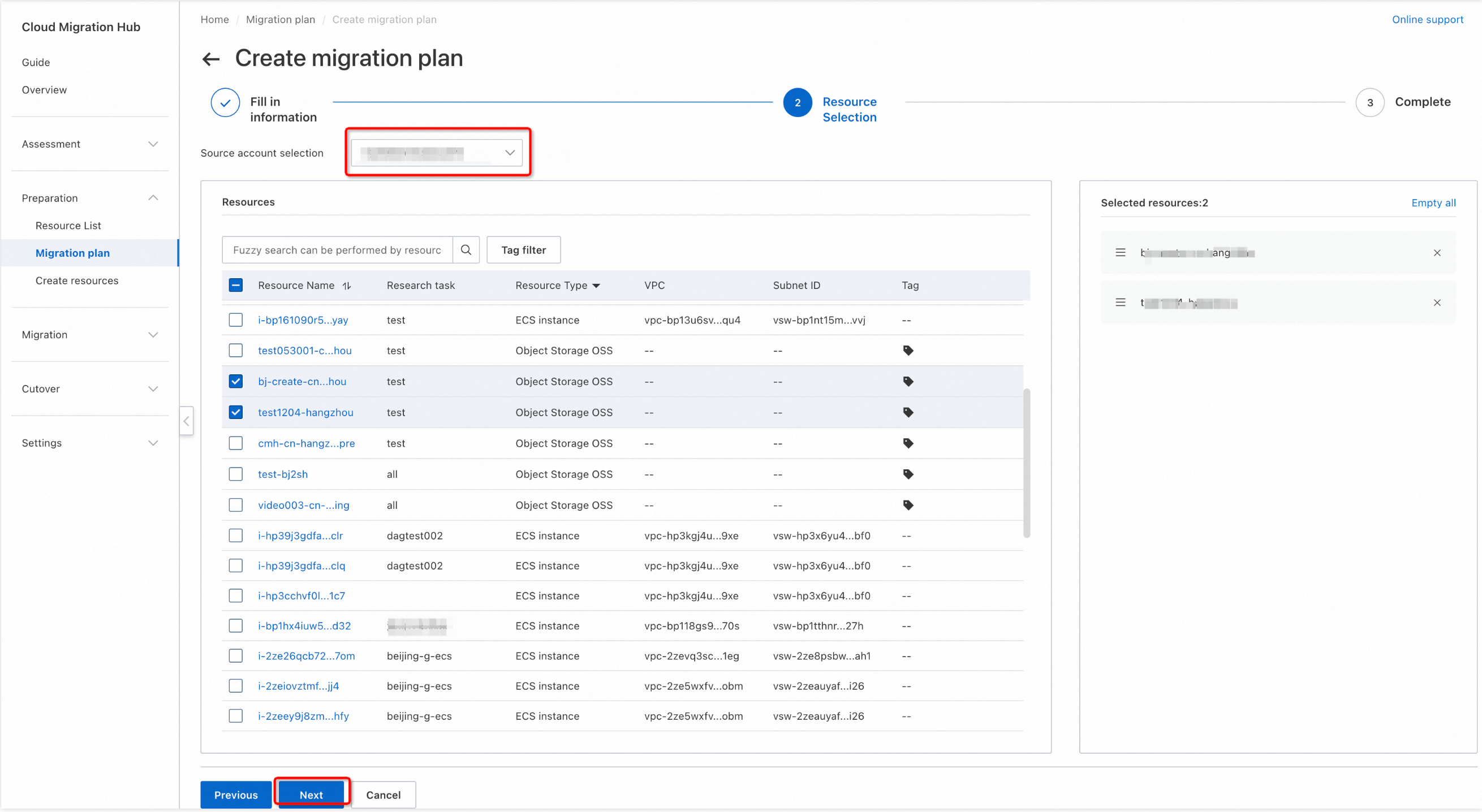
Create resources
Go to the Create resources page to create resources for the destination account. For more information, see Create resources.
If you migrate Elastic Compute Service (ECS) or Object Storage Service (OSS) resources, you must create the corresponding resources in the destination account.
If you migrate AparaDB RDS, ApsaraDB for Redis, ApsaraDB for MongoDB, or PolarDB resources, you can use the mapping feature to map multiple resources to the destination account at a time. For more information, see the Map multiple resources to the destination account at a time section of the "Create resources" topic.
Migrate resources
When you create resources for the ECS instances that you want to migrate, the ECS instances are directly migrated by using images.
To migrate databases, you must create Data Transmission Service (DTS) tasks on the Dashboard page. For more information, see Create a DTS task to migrate databases.
You cannot migrate OSS resources across Alibaba Cloud accounts.